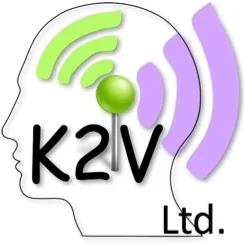Case Histories
The following case histories refer to real events over the last two years where spatial knowledge management has been used by a number of different organisations to create value for petroleum exploration.
Rapid application of knowledge leading to a timely response to a business offering
A major oil company was approached by a license holder with a farm-in opportunity. The major found the opportunity intriguing but it was located in a basin that had seen little attention by the major for a number of years. The major was concerned that either a) the time required to climb the learning curve on the area would be too long and the opportunity might be lost, or b) a quick decision to farm in might leave them exposed due to their lack of current knowledge on the area. The major was able to use its spatial knowledge management database to find out who had relevant knowledge in the basin and invite individuals to participate in a framing followed by a data room to review the opportunity, even though the knowledge holders were located in a number of different parts of the world (working on different assets). The results of the data room were plugged back in to the database using corporate value drivers, allowing the basin to be ranked with other global opportunities, leading to an investment decision within days of the data room closing.
Click here to learn more about knowledge harvesting
Common ownership builds trust
The regulator of a country with mature producing assets requested a workshop with a license holder and NOC to encourage the contractor to invest further in the Country. The contractor used K2V knowledge sharing tools to facilitate a conversation between the three entities (regulator, NOC and IOC), allowing all three to map their knowledge on to common value metrics in three days of facilitated discussion, identifying 9 (out of 122) basins with significant investment potential. The process allowed all three entities to use plenary sessions to share critical elements about petroleum system robustness, identify gaps and respect differences in thinking. All 9 basins were collaboratively ranked even though all three entities had very different views on organisational value propositions. The process demonstrated real depth of knowledge building mutual trust, whilst unexpectedly revealing more about the underlying concerns of each entity and value potential remaining in Country than had been expected before the workshop.
Quick screening of a large areas to find business synergies
Independent oil company with mature assets in a continent wanted to establish new growth opportunities on that continent with potential synergies with existing assets. A project team of 10 geoscientists and 2 commercial were tasked with compiling public domain views using knowledge sharing and enhance those views by knowledge harvesting to rank 88 basins for opportunity screening in under 4 weeks. These were ranked by comparing like for like (the same depth of knowledge, similar data richness and breadth of knowledge) and matching geo-technical and geo-commercial compatibility with existing assets. It is not known how the IOC applied that knowledge to investment decisions - but evidently the same approach was applied to two further continents in the following weeks.
Click here to learn more about peer comparison
New Ventures Look-back
A large exploration organisation was struggling to deal with significant structural and personnel changes brought about by the drop in commodity prices and decided to conduct a look-back study to establish gaps in the way that investment decision were taken in the last 10 years. A series of structured interviews was conducted with knowledge holders using the same value metrics before and after the investment decision was made to establish what the perceptual gaps were and identify if any of these can be mitigated against in the future. The outcome came as a surprise to some and was used to help shape the new organisation.
Strategic impact of common and analogue value metrics
Low to mid-cap oil company operating in a Country with multiple mature basins needed to focus its limited resources on evaluating only those opportunities with strategically based value adding investment potential. 46 basins were screened over a 3 month period and were compared with analogue petroleum systems from a global database to help establish which basins with different levels of knowledge as well as different amounts of data were most tractable to modest investment with the greatest growth potential. Analogue basins were used to close the gap, helping to establish what investment was required for each for a given value return. The resulting range of options (based on petroleum system robustness, differences in cost, time to production, the potential for exposure to non-technical risk, company differentiating technology) resulted in a revision in perceived value of the Country as a whole, forcing a shift in global strategy.
Click here to learn more about value polarisation



